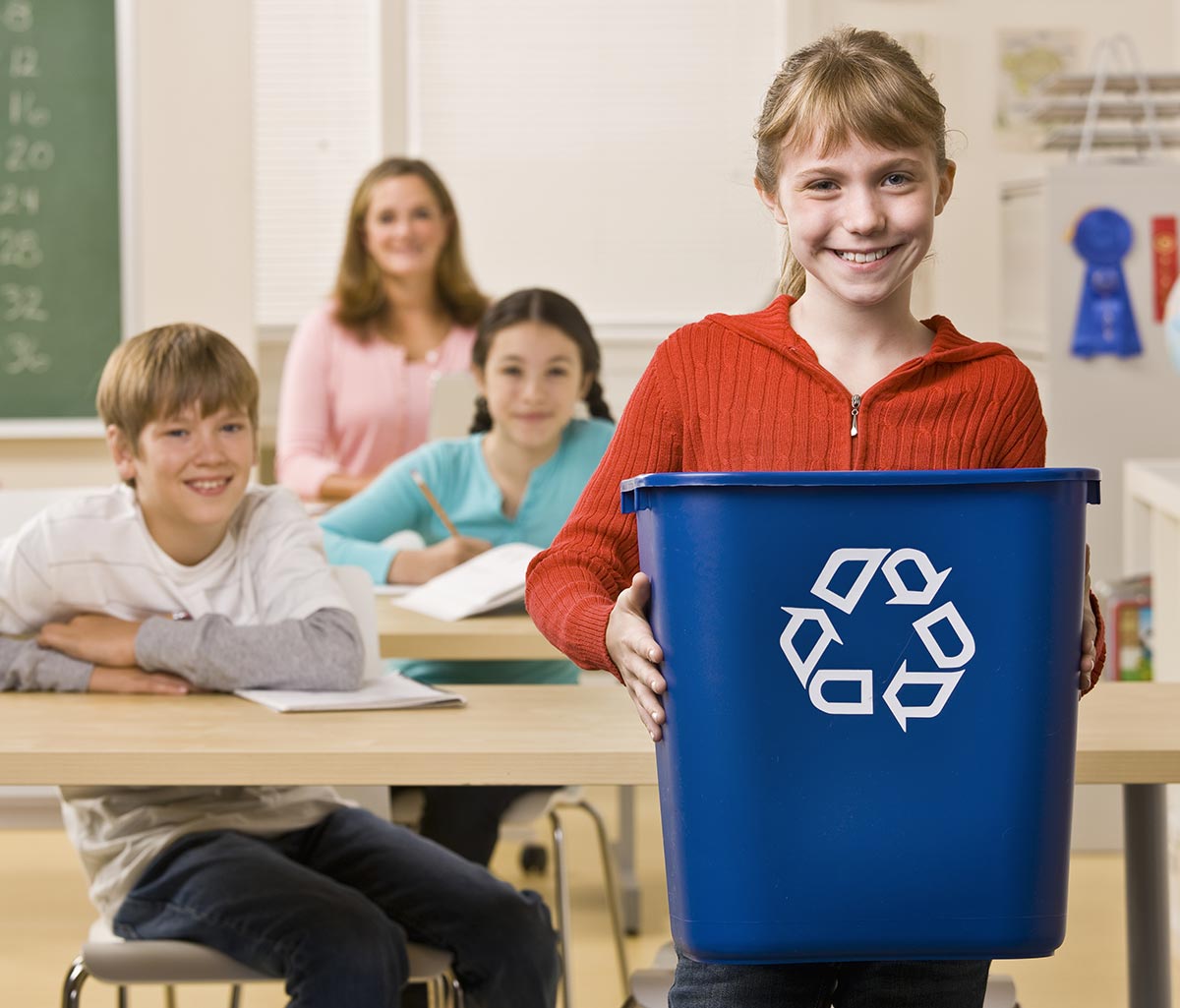
Teachers and students use a great deal of paper and plastics on a daily basis, so there are a lot of opportunities to recycle in the classroom. If you’re a teacher who wants to get your students more involved in recycling, follow these tips to get started:
Let kids decorate the bins.
Younger children love playing with arts and crafts supplies, so get them interested in recycling by allowing them to decorate the bins. Pull out all the glitters, glues, markers, and other crafty items you have and let your students work together to give your recycling bins a new look.
Hold a contest.
Divide your classroom into two teams of students and hold a recycling contest for a week or a month to see who can recycle the most. Make sure you have separate bins for each team so you can track their progress and recognize the winner when the contest is over.
Compost as a class.
Teach your students how to recycle waste by composting. Make sure you do this at the beginning of the school year because the composting process can take quite some time. Once the compost pile is ready, show students how the finished product can be used to add nutrients to flowerbeds, trees, or potted plants. This is a great experiment to do together as a class, especially if you’re a science teacher.
Set up a scratch paper bin.
Create a designated scratch paper bin in your classroom. If students have only used one side of a piece of paper, ask them to throw it in the scratch paper bin instead of the trash. The next time they need to jot something down or use paper for a classroom activity, ask that they use the paper from the bin instead of pulling out a fresh sheet. This shows kids the importance of finding ways to reuse something before recycling it.
Create a public service announcement.
Separate your students into small groups and assign them the task of creating a public service announcement to encourage people to recycle. Your students will have to research and learn about recycling in order to get the information they need to put the public service announcement together. Not only can this help them learn facts about recycling, but they’ll also have fun filming a video together.
Talk to the PTA.
Work with your school’s Parent Teacher Association to see if you can help them plan any recycling events. For example, you could suggest hosting an event where kids bring in their clothing that no longer fits. Then, recycle the clothing by donating it to a local non-profit that collects these items. This event is perfect for the beginning of the school year. Parents often take their kids back-to-school shopping for new clothes during this time, so kids should have a lot of clothes they no longer need. An event like this will also help children understand that there are other forms of recycling they should think about outside of tossing items in a bin.
It doesn’t matter what subject you teach—you can still help your students learn about the importance of recycling with these tips.